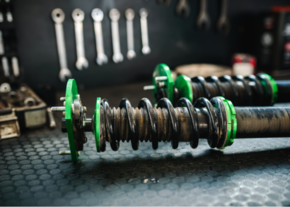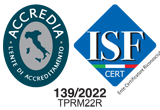
OBD access electronic certification. How to guarantee safety and free and fair competition in the repair business
Massimo Brunamonti
EGEA and AFCAR point out the need for an electronic certificate that regulates access and guarantees privacy, security and puts an end to tampering practices. The European Parliament, meanwhile, established that the Commission must develop within the year an adequate legislative framework
The script, unfortunately, is well known: car manufacturers are bent on restricting access to OBD diagnostic ports only to those who use proprietary equipment, in spite of what has been ratified, albeit not yet regulated, by measures such as the new BER or the Euro 5/6 regulation.
The idea is to block any connection to the OBD interface unless you have an electronic access certification, obtainable only through the manufacturer's server, which reserves the right to grant it at its own discretion.
EGEA and AFCAR were quick to point out how this practice goes against the spirit of the current legislation, not as far as the electronic certificate in itself, but on how it is implemented and managed. An electronic certificate that regulates access and guarantees privacy, security and puts an end to tampering practices is actually desirable; this certificate, however, must be available to all qualified operators, and standardized among all manufacturers so as to avoid the predictable proliferation of rules and access formats aimed at putting independent garages out of the game thus restricting free and fair competition.
The European Commission is hard at work on it and, during a recent meeting of a dedicated working group, introduced its draft program to all member states. The key points related to the ISO 18541 standard on information exchange and the mention of SERMI (association promoting standardized free access through hardware keys and electronic certificates) as a regulatory forum for common, organized and independent access criteria. The Commission's program is expected to be included in a special decree scheduled for June.
Even the European Parliament established, as of last February 20, that the Commission must develop within the year an adequate legislative framework aimed at guaranteeing competitive, non-restricted and non-discriminatory access to technical data for the entire mobility sector as a contribution to modernizing infrastructures, public transport and services as well as protecting consumer rights.
EGEA, and its Italian member AICA, express their satisfaction with this parliamentary initiative and hope that it will be successful within the prescribed deadlines.
The idea is to block any connection to the OBD interface unless you have an electronic access certification, obtainable only through the manufacturer's server, which reserves the right to grant it at its own discretion.
EGEA and AFCAR were quick to point out how this practice goes against the spirit of the current legislation, not as far as the electronic certificate in itself, but on how it is implemented and managed. An electronic certificate that regulates access and guarantees privacy, security and puts an end to tampering practices is actually desirable; this certificate, however, must be available to all qualified operators, and standardized among all manufacturers so as to avoid the predictable proliferation of rules and access formats aimed at putting independent garages out of the game thus restricting free and fair competition.
The European Commission is hard at work on it and, during a recent meeting of a dedicated working group, introduced its draft program to all member states. The key points related to the ISO 18541 standard on information exchange and the mention of SERMI (association promoting standardized free access through hardware keys and electronic certificates) as a regulatory forum for common, organized and independent access criteria. The Commission's program is expected to be included in a special decree scheduled for June.
Even the European Parliament established, as of last February 20, that the Commission must develop within the year an adequate legislative framework aimed at guaranteeing competitive, non-restricted and non-discriminatory access to technical data for the entire mobility sector as a contribution to modernizing infrastructures, public transport and services as well as protecting consumer rights.
EGEA, and its Italian member AICA, express their satisfaction with this parliamentary initiative and hope that it will be successful within the prescribed deadlines.
























